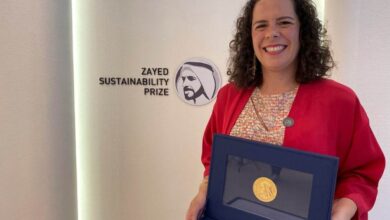Latin America Watches AI’s Empire Extract Power, Data, And Water

A beat reporter follows the wires and the water lines, not the hype. In Wired interviews, Karen Hao argues today’s AI boom doesn’t look like neutral innovation—it looks like an empire, extracting resources from Latin America while selling salvation from Silicon Valley.
The Empire You Can See from the Ground
Karen Hao’s Empire of AI: Dreams and Nightmares in Sam Altman’s OpenAI doesn’t begin in a keynote hall. It starts in places where servers and slogans arrive as weather: Nairobi, labeling hubs where trauma is sanitized for pennies; the Atacama, where brine evaporates into white scars; suburban Santiago, where new data campuses want electricity, tax breaks, and a long drink from a parched aquifer. “For me, it came through interviews with the communities most affected by AI’s supply chain,” Hao told Wired. “They pointed out that what’s happening now is an extension of their history. In Kenya, they spoke of a new form of slavery. In Chile, they spoke of extractivism. For them, it’s a new empire.”
Empire, she insists, is not just a metaphor. It’s a ledger of recurring moves: seize resources under pliable rules; depress labor costs; control knowledge; justify it all with a civilizing mission. “The industry claims resources that aren’t theirs,” she told Wired, describing an economy that scrapes the internet—everything from novels to lullabies—under banners of “public data” and “fair use,” even when authors object. It outsources the dirtiest work—content filtering, synthetic labeling, safety R&D—to precarious workers in the Global South while promising an endgame—AGI—that could “outperform humans at most economically valuable work.” That, Hao argues, is a pincer: depress bargaining power now, then automate wages later.
The empire also colonizes the lab. Compute, frameworks, and benchmarks migrate behind corporate walls; publication and policy follow. “The science and research have been distorted by what serves corporate interests, not the public interest,” Hao told Wired. And like any empire, the rhetoric divides the world into “good” and “bad” hegemons. One chapter traces how OpenAI framed an external empire—first Google, later China—to justify its sprint. The moral rarely wobbles: bless the “good empire” with data, capital, and deference, and it will deliver modernity—and maybe salvation. Resist, and invite ruin.
Power, Data, Water: Latin America’s Front Row Seat
If AI conjures images of server racks and sleek campuses, Hao suggests flipping the view: stand by the mine gate, the substation, the reservoir. “The best way to ‘see’ these processes,” she told Wired, “is to go where they are lit differently.” In northern Chile, lithium and copper leave by the ton to feed batteries, transmission lines, and the AI build-out; in the center, data centers expand with a missionary promise—jobs, modernization, foreign capital—while asking quietly for what they really need: baseline power, stable policy, and water.
In the Salar de Atacama, community leaders watch evaporation ponds churn under desert sun, listening to speeches about the future their land will bankroll: electric cars abroad, intelligence infrastructures everywhere. Progress for whom? Hao asks. “They don’t see progress,” she told Wired. “Their land is taken; their wealth is extracted without fair compensation. And the only jobs often available are for the very companies they view as oppressors.” Around Santiago, organizers ask a different question: who decided to site server farms here, and from which river will the chillers drink? The pattern repeats across Hao’s reporting: national governments court capital; multinationals arrive; local communities—whose air, bills, and water will absorb the costs—are briefed last.
And yet, Latin America is no passive stage. It’s a supplier and a critic, a laboratory and a conscience at once. “What’s striking,” Hao said to Wired, “is how hard these communities fight—asserting agency and ownership, making life difficult for companies, and forcing an international conversation about extractivism.” In the Atacama and on Santiago’s periphery, indigenous councils, neighborhood coalitions, and environmental lawyers have turned environmental review into political theater, demanding hydrological transparency and equity clauses, not just ribbon cuttings. The empire extracts; the region answers; and the fight itself becomes a form of education, a public seminar on who pays for the future.
Faith, Friction, and the Business of AGI
Hao’s reporting tumbles through OpenAI’s inner weather—boardroom ruptures, a CEO’s fall and resurrection, cofounders spinning out to found competitors, the slow gravitational pull from “research lab” to consumer platform. She is skeptical of the founding myth. “They still call themselves a nonprofit,” she told Wired, “but they are one of Silicon Valley’s most capitalistic organizations.” The center of gravity isn’t a cathedral of open science, she argues; it’s distribution and data. “More users, more market share, more data,” she said, describing a strategy that wraps modern prophecy—AGI—in contemporary business—subscription products, licensing, platform lock-in.
Sam Altman, in her telling, is a virtuoso of soft power: “He accumulates power through persuasion, not coercion,” Hao told Wired. The technique is cheerful omnivory—rarely say no; make everyone the protagonist; blur favored partner and regulator into a single room. It reads as generosity to some, manipulation to others. The gap between persona and practice—”good guy” versus “growth at all costs”—helps explain why he could be ejected in a blaze and restored in a weekend.
The story extends beyond a single executive; it’s the vernacular of an industry that baptizes its ambitions with a higher purpose. Hao opens the book with Altman’s line—”the most powerful people are the ones who create religions”—because the AGI narrative functions that way. “He understood early the need to give people a higher purpose,” she told Wired. “He harnessed the fervor around AGI as that purpose and fed it—externally and internally.” Mission disciplines staff; prophecy persuades policymakers; both anesthetize scrutiny.
The friction is not incidental; it’s fuel. Research versus product; safety versus ship date; openness versus moat—these binaries are staged and restaged in public while contracts, partnerships, and cloud footprints quietly expand. Faith makes the sprint legible. Capital makes it nonnegotiable.

EFE@Hannibal Hanschke
Company-State, State-Company: When Democracies Slip
Hao’s most unsettling analogy reaches backward: the British East India Company. A chartered firm that metastasized—commercial leverage into political sovereignty, tariffs into taxes, private armies into a public empire—before being folded into the crown. “I see the dynamic between OpenAI and the Trump administration as a contemporary echo,” she told Wired. In her framing, Washington views hyper-scale AI firms as instruments to extend an American sphere; the firms view Washington as a power adaptor for their own imperial reach. Each wants the other’s machinery; each imagines, eventually, holding the switch.
The gears are already clicking. OpenAI softened its ban on military work, clearing lanes to defense contracts. Hardware-software-cloud stacks—private infrastructures—are being exported via deals that look like public utilities: the platform as polity, the API as law. “The idea,” Hao told Wired, “is to use multinationals as vehicles to extend U.S. power, with the hope that one day these companies could be nationalized.” Whether that endgame is real or rhetorical matters less to her than the present tempo: state-company and company-state surging toward each other, sharing language—security, inevitability, deterrence—while the public sphere thins.
What frightens Hao most is what erodes in transit. “No one in this ecosystem seems primarily concerned with preserving democracy,” she told Wired. “They are moving quickly to unravel democratic norms.” The inversion is almost elegant in its cruelty: the same publics whose words are harvested to train models, whose rivers run lower to cool servers, whose wages are pressured by efficiency crusades, are asked to applaud the miracle. It’s why Hao insists the AI beat is not a math problem. It’s power, money, ideology. Decode the math and miss the empire, and you’ll miss the point.
Her prescription is old-school and alive. “AI used to be a science story,” she said to Wired. “Then it changed drastically.” The tools include: following the money, pulling FOIAs on data-center siting and water rights, interrogating claims and safety cases, surfacing procurement trails, and calling the communities asked to host the future. “If you’re good at FOIA, there are rich records on local data-center projects,” she told Wired. “If you understand politics, trace the lobbying that wins these companies more power. If you have access to internal sources, gather relevant documents. And if your expertise is health, education, labor—go see how AI is remaking those sectors, and for whom.”
The hope is pragmatic, not pious: a thousand small accountability projects blooming wherever the empire lands, giving communities in Latin America and beyond the facts to negotiate, the leverage to resist, the language to insist that progress be counted in more than press releases. Empires are not inevitable, Hao reminds us. They are organized—contracts, pipelines, memoranda, non-disclosures, utility hookups—and organization can be answered in kind.
In the meantime, the map enlarges. From the salt flats to the server halls, from the village council to the venture board, the empire is visible—if you bother to look down as often as you look up. The code is the least secret thing in the story. The secrets are the permits, the pumps, the power-purchase agreements, and the promise that the future will arrive clean while someone else’s water runs dry.
Also Read: Brazil’s Discovery of CBD In a Common Shrub Could Reshape the Medical Cannabis Debate
And Latin America—supplier and skeptic, host and historian—stands in the doorway, asking the most basic, most subversive question an empire hates to hear: Progress for whom?




